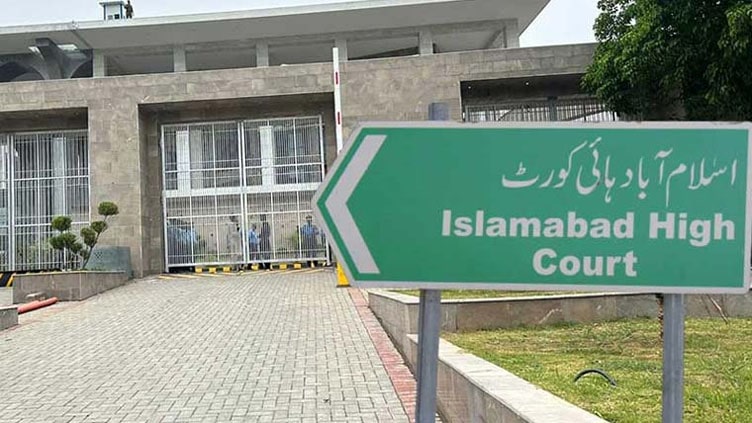Bushra Bibi audio leak case: Federal govt challenges IHC order in apex court

Pakistan
Government says the IHC has no right to take suo moto notice
ISLAMABAD (Dunya News) - The federal government has challenged the Islamabad High Court’s (IHC) order in the Bushra Bibi audio leak case.
The federal government has filed a petition in the Supreme Court against IHC’s order.
The plea contended that summoning heads of state institutions and seeking reports from them was equivalent to fact-finding, which was against the court's jurisdiction.
It argued that Najam Saqib’s petition was against the parliamentary committee’s summons, and that matter had been resolved.
The federal government’s plea also mentioned that the IHC was proceeding against points of inadmissible application. It was added that the IHC had no right to take suo moto notice.
IHC’s Babar Sattar remarked during the hearing of Bushra Bibi audio leak case: “There is no law regarding phone tapping in the country and what is currently taking place is illegal.”
Also read: Phone tapping currently taking place in country is illegal, observes IHC
The court ordered the telecommunication companies to refrain from recording phone calls for surveillance purposes.
Meanwhile, the IHC also issued a contempt of court notice to the Pakistan Telecommunication Authority (PTA) chairman and its members, directing them to submit a response within six weeks.
The court remarked, “The court is of the view that the PTA apparently misinterpreted the surveillance system in the report.”
The IHC also directed the PM office to submit a report on the legal framework of the surveillance system within six weeks, seeking clarity on whether the surveillance was being carried out under the law and the constitution.
It is pertinent to note the alleged audio leak case involves a call conversation between former prime minister Imran Khan's spouse Bushra Bibi, and Najam Saqib, the son of retired chief justice of Pakistan Saqib Nisar, on party ticket.
Read more: IHC restrains telecom firms from intercepting phone calls for surveillance purposes


